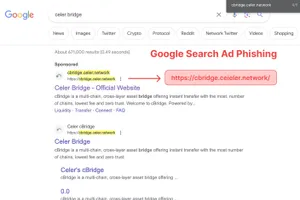Someone observed the DEA wallet send a small test transaction before transferring the remaining seized funds, and quickly used a crypto wallet address with identical characters at the beginning and end to send an airdrop to the DEA source wallet. When the DEA agent went to send the remaining funds, they copied-and-pasted the address, believing it was the same one they'd sent the test transaction to. This is a common scam in the crypto world known as "address poisoning", and is successful primarily because crypto wallet addresses are very long strings of characters that people usually copy-and-paste, and only identify by the characters at the start and end.
Upon discovering that they'd been duped, the DEA contacted Tether to ask them to freeze the funds. However, by that time, the scammer had already converted the money into ETH, which couldn't be frozen. The DEA is now working with the FBI to try to trace the theft.











































